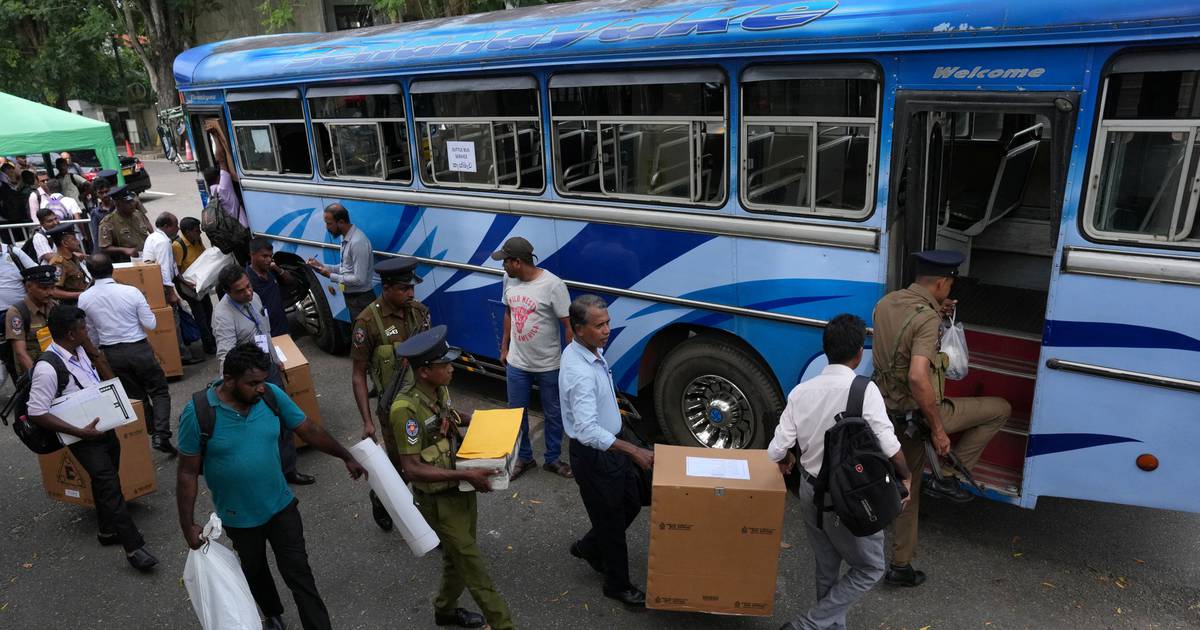Sri Lanka began voting on Thursday in a snap election that will determine whether the Asian island nation empowers its new, left-wing president, Anura Kumara Dissanayake, to push his policies in favor of of the poor as it recovers from the financial collapse. Slightly more than 17 million inhabitants of Sri Lanka have the right to elect representatives to the 225-member parliament for a five-year term. A record 690 political parties and independent groups are participating in the fight in 22 constituencies.
The Marxist-leaning Dissanayake, 55, was elected president in September, but his National People’s Power (NPP) coalition won just three of the 225 seats in parliament, forcing him to dissolve the legislature nearly a year before his term was due to expire. and is looking for a new mandate.
More than 7,000 police officers have been deployed to ensure free and fair elections at more than 13,400 polling stations across the country, police officials told Reuters.
“The army is also on standby to assist the police, but we do not expect any incidents,” police spokesman Nihal Thalduwa said, adding that voting was going smoothly.
When the polling stations opened in the early hours of the morning, people began to enter the temples, schools and other public buildings that were used as polling stations.
Analysts say that Dissanayake’s coalition is expected to attract significant support, while a rival victory could lead to a political deadlock that the country cannot afford.
Opposition leader Sajith Premadasa’s Samagi Jana Balawegaya party – which favors a mix of interventionist and free market economic policies – is the main challenger; of the NPP. The other key candidate is the New Democratic Front, which is backed by former president Ranil Wickremesinghe.
“All arrangements have been made and we appeal to the public to cooperate with us to ensure free and fair elections,” Election Commission Chairman RML Rathnayake told reporters at a pre-election briefing on Tuesday.
The votes will be counted shortly after the polls close on Thursday, and the announcement of the results is expected on Friday.
A country of 22 million people at the very southern tip of India, Sri Lanka was wracked by an economic crisis in 2022 caused by a severe shortage of foreign currency, which saw the economy shrink by 7.3 percent in 2022 and 2.3 percent last year.
Buoyed by a $2.9 billion bailout program from the International Monetary Fund, the economy has begun a temporary recovery, but the high cost of living remains a critical problem for many people, especially the poor.
Dissanayake wants to promote anti-poverty policies including larger social welfare programs and fight corruption as a political outsider in a country dominated by family parties for decades.
It also intends to adjust the goals set within the IMF program to reduce high income taxes and free up funds for investment in social welfare for the millions most affected by the crisis.
The new government must deliver a budget to meet the key target of a primary surplus of 2.3 percent of GDP in 2025 set under the IMF program, implement pro-poor policies and put growth on a sustainable path. .
But investors worry that Dissanayake’s desire to review the terms of IMF aid could delay future disbursements and make it harder for Sri Lanka to hit that primary surplus target.
“In the last election, people did not trust us, but in September, people gave us victory and proved that we are a winning party and that we can form a government,” Dissanayake said on Sunday as the campaign drew to a close.
“The next task is to unite people from the four sides of this country and build a strong popular movement,” he said
